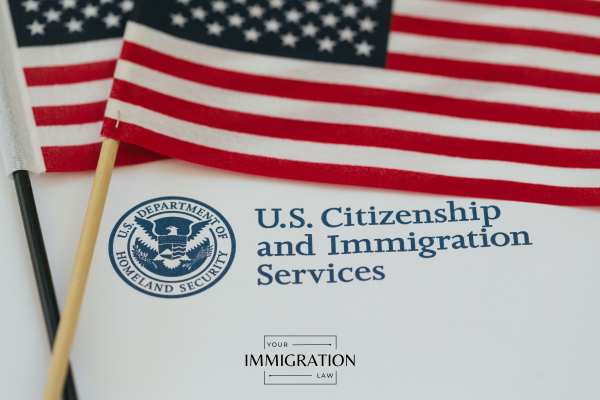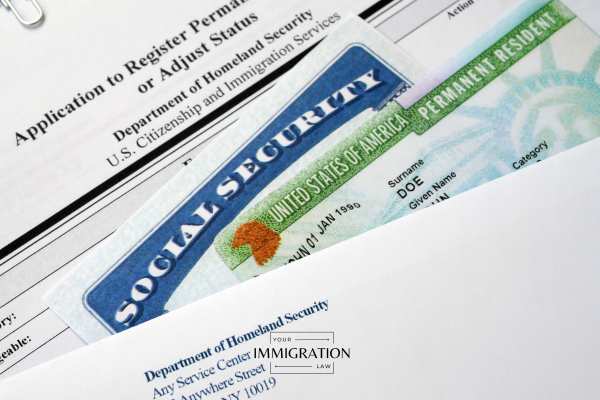Applying for a marriage visa can be a complex process, with detailed requirements and paperwork that must be handled correctly to avoid delays or denials. Whether you're applying for a K-1 fiancé visa or a spousal visa, understanding the legal process is crucial. A marriage visa lawyer can help guide you through every step, ensuring that all documents are complete and filed on time, giving you peace of mind during an emotional and stressful process.
A skilled marriage visa lawyer can also help address any potential issues, such as proving the legitimacy of your marriage or navigating the interview process. If you're ready to start the marriage visa process, or if you need help resolving complications, call Your Immigration Law at 313-631-8080. Our experience can make all the difference in getting you and your loved one together quickly and efficiently.
Types of Marriage Visas
There are several types of marriage visas available for individuals who wish to join their spouse in the U.S. These visas allow foreign spouses of U.S. citizens or lawful permanent residents to live and work in the United States. The main types of marriage visas are:
K-1 Fiancé(e) Visa
The K-1 visa is for foreign nationals engaged to U.S. citizens. It allows the fiancé to enter the U.S. for the purpose of getting married. After the marriage and within 90 days of entry, the foreign national can apply for a marriage-based green card through adjustment of status.
To qualify for a K-1 fiance visa, the U.S. citizen must be the petitioner and demonstrate that they are a U.S. citizen. The foreign national, who is the fiancé, must be the intended recipient of the visa. Both parties are required to have met in person at least once within the past two years.

This requirement ensures that the relationship is genuine. Additionally, both individuals must intend to marry within 90 days of the foreign national's arrival in the U.S. The process begins with the U.S. citizen filing Form I-129F (Petition for Alien Fiancé) with the U.S. Citizenship and Immigration Services (USCIS).
CR-1 Visa (Conditional Resident)
The CR-1 visa is for foreign spouses of U.S. citizens who have been married for less than two years at the time of visa application. It grants conditional permanent residency, which requires the couple to apply to remove the conditions within two years of receiving the visa to become a full permanent resident.
For a CR-1 visa, the U.S. citizen must be the petitioner and prove their citizenship and marital status with the foreign national. This visa is designated for couples who have been married for less than two years at the time of visa application. The U.S. citizen starts the process by filing Form I-130 (Petition for Alien Relative) with USCIS. Once the petition is approved, the foreign spouse will proceed with the CR-1 visa application at a U.S. embassy or consulate.
IR-1 Visa (Immediate Relative)
The IR-1 visa is for foreign spouses of U.S. citizens who have been married for at least two years at the time of the application. This visa grants permanent residency without any conditions, meaning the foreign spouse becomes a full permanent resident upon entry to the U.S.
The IR-1 visa requires the U.S. citizen to be the petitioner, who must provide evidence of citizenship and prove that they are legally married to a foreign national. Unlike the CR-1 visa, the IR-1 is for couples who have been married for at least two years by the time of the visa application. The application process begins with the U.S. citizen filing Form I-130 with USCIS. Following approval, the foreign spouse will apply for the IR-1 visa at a U.S. embassy or consulate.
K-3 Visa
The K-3 visa is for foreign spouses of U.S. citizens. It allows the spouse to enter the U.S. while waiting for their immigrant visa to be processed. However, the K-3 visa is less commonly used now since the process for spousal immigrant visas has become more streamlined.
To obtain a K-3 visa, the U.S. citizen must be the petitioner and must have already filed a Form I-130 petition for their spouse. The K-3 visa allows the foreign spouse to enter the U.S. while waiting for their immigrant visa to be processed. The process involves the U.S. citizen filing Form I-129F specifically for the K-3 visa.
F-2A Visa
The F-2A visa is for spouses of lawful permanent residents (green card holders). Unlike the CR-1 or IR-1, which are for spouses of U.S. citizens, the F-2A applies when the sponsoring spouse is a green card holder.
The F-2A visa is available for the spouses of lawful permanent residents. The petitioner, who must be a lawful permanent resident, needs to provide proof of their permanent resident status and their legal marriage to the foreign national. To start the process, the green card holder files Form I-130 with USCIS. After the petition is approved, the foreign spouse will apply for the F-2A visa at a U.S. embassy or consulate.
These visas provide pathways for foreign spouses to live and work in the U.S., with each having different eligibility criteria based on the length of marriage, the citizenship status of the sponsoring spouse, and the specific immigration goals of the couple.
Steps in the Marriage Visa Process
Here's a comprehensive overview of the steps involved in the marriage visa process:
Determine the Appropriate Visa Type
First, determine which type of marriage visa suits your situation. This will depend on factors like whether you are already married or planning to marry, and the current residency status of the U.S. petitioner. For instance, if you are engaged and plan to marry in the U.S., you would apply for a K-1 fiance visa. If you are already married and one partner is a U.S. citizen, you might apply for a CR-1 or IR-1 visa, whereas the K-3 visa can be used if you are already married but waiting for an immigrant visa.
File the Petition
The U.S. citizen or lawful permanent resident starts the process by filing the appropriate petition with the USCIS. For the K-1 visa, this involves filing Form I-129F. For the CR-1 or IR-1 visas, you need to file Form I-130. If applying for a K-3 visa, the process also includes filing Form I-129F. For the F-2A visa, Form I-130 is required.
USCIS Review and Approval
Once the petition is filed, USCIS will review it and make a decision. This step includes verifying the petitioner’s eligibility, checking the validity of the marriage, and ensuring that all documentation is in order. If additional information or documentation is needed, USCIS will issue a Request for Evidence.

National Visa Center (NVC) Processing
After USCIS approves the petition, it is forwarded to the National Visa Center. The NVC will assign a case number and send instructions for further steps. This involves paying visa fees and submitting additional documents.
Apply for the Visa
The foreign national will need to apply for the visa through a U.S. embassy or consulate. This includes completing the DS-260 form, scheduling and attending a medical examination, and preparing for an interview. The embassy or consulate will review the application, verify the authenticity of documents, and conduct an interview.
Visa Issuance and Entry to the U.S.
If the visa application is approved, the foreign national will receive the visa in their passport. They can then travel to the U.S. and present their visa at a port of entry. For the K-1 visa, the foreign national must marry the petitioner within 90 days of entry. For other visas like CR-1 or IR-1, the foreign national will be admitted as a permanent resident upon entry.
Adjustment of Status (if applicable)
For K-1 visa holders, after marriage in the U.S., the foreign national must file Form I-485 (Application to Register Permanent Residence or Adjust Status) to become a permanent resident. For K-3 visa holders, this step is also necessary to adjust their status to a green card holder.
How long does it take to get a marriage visa?
The length of the marriage visa process depends on several factors, including the type of visa, the country of origin, and how efficiently forms and documents are processed by USCIS, the NVC, and U.S. embassies.
The marriage visa process involves several stages, and the duration can vary based on individual circumstances, the specific visa type, and processing times at USCIS and the U.S. Department of State. Here’s a general overview of the timeframes involved:
K-1 Fiancé Visa
Once you file Form I-129F with USCIS, processing times can vary. Typically, it takes about 6 to 12 months for USCIS to process and approve the petition.
After USCIS approval, the petition is sent to the National Visa Center and then to the U.S. embassy or consulate in the foreign national's country. The consular processing time can take an additional 2 to 4 months, depending on the specific consulate and any additional documentation required.
The entire process usually takes about 8 to 16 months from the time of filing the initial petition to receiving the K-1 visa.
CR-1/IR-1 Spousal Visas
For a CR-1 or IR-1 visas, you start by filing Form I-130 with USCIS. Processing times for Form I-130 typically range from 7 to 15 months.
After USCIS approves the petition, it is sent to the NVC for further processing. The NVC will request additional documents and schedule an interview. This stage can take 2 to 6 months, depending on how quickly you provide requested documentation.
Once the NVC completes its processing, the case is forwarded to the U.S. embassy or consulate. The visa interview and final processing at the consulate typically take 1 to 3 months. The entire process for a CR-1 or IR-1 visa generally takes around 12 to 24 months from the initial filing of Form I-130 to the issuance of the visa.
Adjustment of Status
After entering the U.S. on a K-1 visa and marrying within the required 90 days, you will file Form I-485. This process typically takes about 8 to 14 months. If you are adjusting your status from a K-1 visa, the total time from entering the U.S. to receiving your green card is around 12 to 24 months.

Processing times can fluctuate based on factors such as the workload at USCIS or the consulate, the completeness of your application, and any additional security or background checks required. It’s advisable to regularly check processing times on the USCIS website and consult with an immigration attorney for up-to-date information and guidance tailored to your specific case.
Reasons a Marriage Visa Might Be Denied
Yes, a marriage visa can be denied. The denial can occur at various stages of the process, whether it's the K-1 fiance visa or the CR-1/IR-1 spousal visa. Here are some common reasons for a visa denial:
- Incomplete or Incorrect Documentation: Failure to provide all required documents or submitting incorrect information can lead to a denial. This includes missing forms, incomplete details, or discrepancies between documents.
- Insufficient Proof of a Genuine Relationship: For both K-1 and CR-1/IR-1 visas, you must prove that the marriage or relationship is genuine. If the evidence provided is deemed insufficient or suspicious, it could result in denial.
- Fraud or Misrepresentation: Any form of fraud or misrepresentation on the visa application can lead to immediate denial. This includes providing false information about the relationship or previous immigration history.
- Criminal Background or Security Issues: If the applicant or the petitioner has a criminal record or there are security concerns, it could impact the visa decision. This includes serious crimes or issues related to national security.
- Inadequate Financial Support: For spousal visas, the U.S. citizen or permanent resident must demonstrate the ability to financially support their spouse. If they do not meet the income requirements or fail to provide sufficient evidence of financial stability, the visa may be denied.
- Prior Immigration Violations: If either the petitioner or applicant has previously violated U.S. immigration laws, such as overstaying a visa or working without authorization, it can affect the visa application.
- Medical Issues: Certain medical conditions that could pose a public health risk may also be grounds for denial. This usually involves conditions that are deemed dangerous or that require excessive medical treatment.
- Failure to Attend Interviews: If the applicant or petitioner fails to attend required interviews or appointments, the application may be denied.
- Issues with Relationship History: For marriage-based visas, if there are issues or inconsistencies regarding the history of the relationship, such as discrepancies in how long the couple has been together, it might raise red flags.
- Unresolved Waivers or Legal Issues: If the applicant needs a waiver for any inadmissibility grounds or legal issues and it has not been resolved properly, it could lead to denial.
If a visa application is denied, you typically receive a notice detailing the reasons for the denial. Understanding these reasons and addressing any issues can help in reapplying or appealing the decision. Consulting with a family immigration attorney can provide guidance on how to navigate a denial and improve your chances in future applications.
Get Help with Your Marriage Visa Today
Navigating the complexities of a marriage visa application can be overwhelming, but having the right legal support makes the process smoother. A family visa lawyer can help ensure that your paperwork is filed correctly and any potential issues are addressed early. Don't risk delays or denials by going it alone.
If you're ready to take the next step in reuniting with your spouse or fiancé, contact Your Immigration Law to speak with a marriage visa lawyer today. With professional guidance, you can move forward confidently, knowing your case is in good hands.